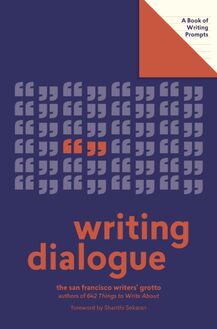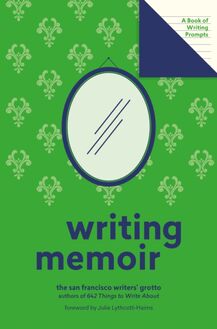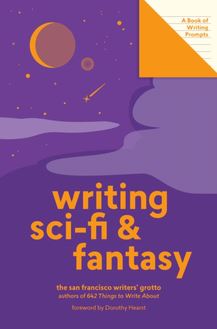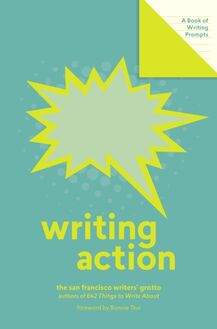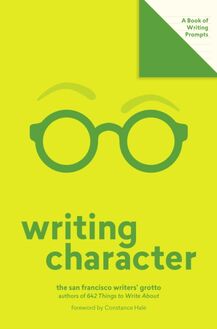-
 Univers
Univers
-
 Ebooks
Ebooks
-
 Livres audio
Livres audio
-
 Presse
Presse
-
 Podcasts
Podcasts
-
 BD
BD
-
 Documents
Documents
-
- Cours
- Révisions
- Ressources pédagogiques
- Sciences de l’éducation
- Manuels scolaires
- Langues
- Travaux de classe
- Annales de BEP
- Etudes supérieures
- Maternelle et primaire
- Fiches de lecture
- Orientation scolaire
- Méthodologie
- Corrigés de devoir
- Annales d’examens et concours
- Annales du bac
- Annales du brevet
- Rapports de stage
La lecture à portée de main
Vous pourrez modifier la taille du texte de cet ouvrage
Découvre YouScribe en t'inscrivant gratuitement
Je m'inscrisWriting Dialogue (Lit Starts) , livre ebook
Découvre YouScribe en t'inscrivant gratuitement
Je m'inscrisEn savoir plus
Vous pourrez modifier la taille du texte de cet ouvrage
En savoir plus

Description
Informations
| Publié par | ABRAMS BOOKS |
| Date de parution | 05 juillet 2022 |
| Nombre de lectures | 1 |
| EAN13 | 9781647009717 |
| Langue | English |
Informations légales : prix de location à la page 0,0584€. Cette information est donnée uniquement à titre indicatif conformément à la législation en vigueur.
Extrait
writing dialogue
I ve spent far too much time watching and rewatching the scene in The Godfather Part II where Fredo Corleone sits in an armchair, trying to coax Michael to quickly wrap up an ill-advised deal. Michael knows that Fredo, his brother, is double-crossing him, but says nothing, gazing coolly down as Fredo grows at once more hyped and helpless:
Fredo: I m your older brother, Mike, and I was stepped over!
Michael: That s the way Pop wanted it.
Fredo pretty swiftly loses his nut, and a few minutes later, he s rowed out on a boat and shot.
What is it that makes this scene so iconic? Physically, not much happens. Michael stands and Fredo sits. The two brothers talk, Fredo frantic, Michael barely nudging past a whisper. The power of this scene lies in its dialogue, its verbal and physical expression, the positioning of the two brothers-all of which tell us everything we need to know about who s in charge, who will live, and who will die. When Francis Ford Coppola made this film, he had a script to work with, but he also had sunshine and shadow, vocal pitch, Al Pacino s cool seethe, and John Cazale s apoplectic temper.
Well, good for Coppola. But how do writers, with no camera at our disposal, use dialogue to create such nuance? How do you create a sense of dominance and submission without physically positioning your characters on a set? How do you capture backstory, volume, and tension without the tools of light and shade, sound and screen?
First, every writer must decide if the speech he or she seeks to put on the page is best summarized (e.g., He said he didn t want the milk, so I sighed and poured it down the drain) or presented in the classic opening-quote closing-quote fashion (e.g., I don t want the stinkin milk! he shouted, to which I sighed and said, Fine, mostly to myself, and dumped the stuff down the drain). When agonizing over which way to go, consider this: If your dialogue can reveal something of your character s personality, his way of carrying himself, or his investment in a moment, keep it, and do what you can to maximize its effect. If it s not performing one of these functions, go with summarized speech.
Once you ve decided on dialogue, tune your ear and listen like crazy. What makes a distinctive voice? Vocabulary, accent, turns of phrase, pause fillers, verbal tics? Absolutely.
But true voice distinction lies more in attitude than in word choice or habits of speech. Does the character you are about to put in verbal motion walk into a crowded party and plunge into its center? Does she hover at the wall? Does she head to the kitchen and busy herself with hosting duties that aren t hers, just to have something to do? Your character s attitude toward this party will influence how she speaks. Maybe, fearful of awkward silences, she ll find the nearest guest and launch into a monologue, barely pausing to breathe, her speech a series of run-on, punctuation-starved sentences. Maybe she ll stand alone, be approached by a stranger, and answer in monosyllables and sentence fragments, afraid to fumble, unable to loosen up and speak freely. Maybe she ll ask and answer the usual introductory questions, her dialogue punctuated with body language that shows how bored she truly is with this small talk, party after party, the same music, the same crackers and hummus, the same questions and answers.
Dialogue and the voices that compose it don t exist in a vacuum, in other words. A character s attitude in a given situation-the stuff the woman above brought along to the party (bias, anger, fear, a half-empty flask of vodka, etc.)-informs word choice, sentence style, and how she treats the people she talks to.
Often, then, good dialogue relies on visual cues to inform its sound. Let s look at a passage from Annie Proulx s short story Brokeback Mountain :
Forest Service got designated campsites on the allotments. Them camps can be a couple a miles from where we pasture the sheep. Bad predator loss, nobody near lookin after em at night. What I want-camp tender in the main camp where the Forest Service says, but the herder - pointing at Jack with a chop of his hand- pitch a pup tent on the Q.T. with the sheep, out a sight, and he s goin a sleep there. Eat supper, breakfast in camp, but sleep with the sheep , hundred percent, no fire , don t leave no sign . Roll up that tent every mornin case Forest Service snoops around. Got the dogs, your .30-.30, sleep there. Last summer had goddam near twenty-five-percent loss. I don t want that again. You , he said to Ennis, taking in the ragged hair, the big nicked hands, the jeans torn, button-gaping shirt, Fridays twelve noon be down at the bridge with your next-week list and mules.
-
 Univers
Univers
-
 Ebooks
Ebooks
-
 Livres audio
Livres audio
-
 Presse
Presse
-
 Podcasts
Podcasts
-
 BD
BD
-
 Documents
Documents
-
Jeunesse
-
Littérature
-
Ressources professionnelles
-
Santé et bien-être
-
Savoirs
-
Education
-
Loisirs et hobbies
-
Art, musique et cinéma
-
Actualité et débat de société
-
Jeunesse
-
Littérature
-
Ressources professionnelles
-
Santé et bien-être
-
Savoirs
-
Education
-
Loisirs et hobbies
-
Art, musique et cinéma
-
Actualité et débat de société
-
Actualités
-
Lifestyle
-
Presse jeunesse
-
Presse professionnelle
-
Pratique
-
Presse sportive
-
Presse internationale
-
Culture & Médias
-
Action et Aventures
-
Science-fiction et Fantasy
-
Société
-
Jeunesse
-
Littérature
-
Ressources professionnelles
-
Santé et bien-être
-
Savoirs
-
Education
-
Loisirs et hobbies
-
Art, musique et cinéma
-
Actualité et débat de société
- Cours
- Révisions
- Ressources pédagogiques
- Sciences de l’éducation
- Manuels scolaires
- Langues
- Travaux de classe
- Annales de BEP
- Etudes supérieures
- Maternelle et primaire
- Fiches de lecture
- Orientation scolaire
- Méthodologie
- Corrigés de devoir
- Annales d’examens et concours
- Annales du bac
- Annales du brevet
- Rapports de stage
